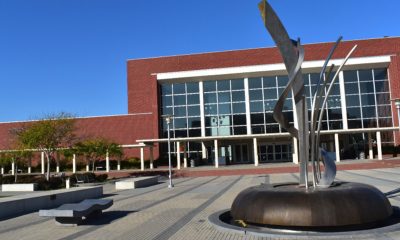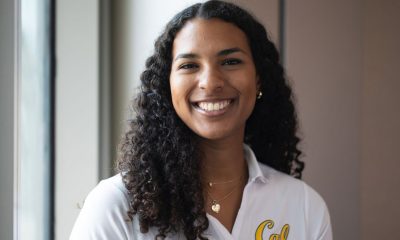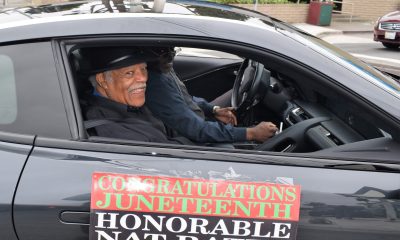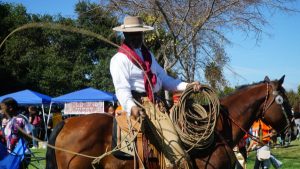Arts and Culture
2019: A Significant Anniversary for African Americans
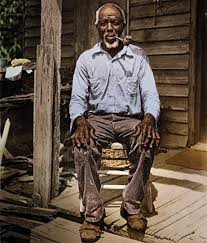
Part 1
This Juneteenth is a poignant one for African Americans.
Next month, as it has for the last 12 years, Omnira Institute will present its unique Juneteenth celebration.
Instead of a parade or festival, it is a Ritual of Remembrance for those enslaved ancestors who died before freedom came. OI honors their memory as best they can in the languages and spiritual traditions the people had before enslavement.
In main, the ceremony will be Oro Egun, a litany of prayers in Yoruba for the elevated ancestors who were invoked as protectors of the people in what is now Nigeria.
This year, on the 160th anniversary of his capture, OI will honor Cudjo Lewis, otherwise known as Oluale Kossula, who was one of the survivors of the last known Middle Passage journey from Africa to the United States.
Kossula was a Yoruba man.
His capture and enslavement just a few years before the Emancipation Proclamation was a cynical act by Southern slaveholders who believed their hold on the U.S. economy would make them the winners in a civil war or allow them to flourish in secession.
They were almost right. As tensions rose, and it seemed the two sides were on the brink of war, four men outfitted a ship to sail from Mobile, Ala., to Africa with the intent of buying and bringing back Africans to work.
It was August of 1859, more than 40 years after U.S. law forbid the importation of Africans from abroad, when the Clotilda set sail for Whydah, on the West Coast of Africa, where, after several centuries of such plunder, selling captives from so-called local wars had regrettably become a way of life.
The men and women smuggled into Alabama were sold to nearby plantations, others kept by their original captors who were eventually fined for breaking the law (The fine was never enforced).
Ostracized by the African Americans for their ignorance of domestic ways as well as their inability to speak English, the Yoruba managed as best they could to maintain the ways of their countrymen.
When the war was over in 1865, they voted among themselves to return to Africa, but couldn’t raise the money. They decided, therefore, to have their own settlement, and, in 1872, they endeavored to buy the land from their former owners that would become known as Africatown in what is now Plateau, Ala.
Like other Black towns, their autonomy gave them some protection from white people, but unlike other Black towns, this one provided protection from Americans: they spoke the language of their forebears without having to speak English; the Africans conducted their community in much of the way of their Yoruba ancestors.
In 1928, Black anthropologist Zora Neale Hurston went to interview Kossula who had been born around 1840 in what is now the Bante region of Benin in Nigeria.
Captured as a teenager, he would become a farmer and laborer, a leader among his fellow Africans. He and his wife, fellow captive Abila, had six children who all tragically preceded him in death through sickness, accident and one even unjustly killed by a Black deputy sheriff..
For this writer, Kossula’s story was a marvel. Like Kossula himself, who wept when someone finally came to get his life story, I was awestruck to learn there had been people in the U.S. from the time of the tradition OI has tried to uphold.
On June 8, OI and its guests will call his name and the names of other residents of Africatown, Ala., who lived out their lives as Africans surrounded by people who reviled them for being themselves.
Please join us.
The 12th Annual Juneteenth Ritual of Remembrance is on Saturday, June 8 at the Lake Merritt Boathouse picnic area, 562 Bellevue Ave.in Oakland, 11 a.m. to 1 p.m. Free. For more information, please all (510) 332-5851.
Arts and Culture
Kedrick Armstrong: New Music Director for the Oakland Symphony
The Oakland Symphony Announced Kedrick Armstrong as its Next Music Director. In addition to conducting the orchestra’s public concerts, Armstrong will also actively participate in the Oakland Symphony’s many education and community engagement programs, designed to inspire a love of music in people of all ages.
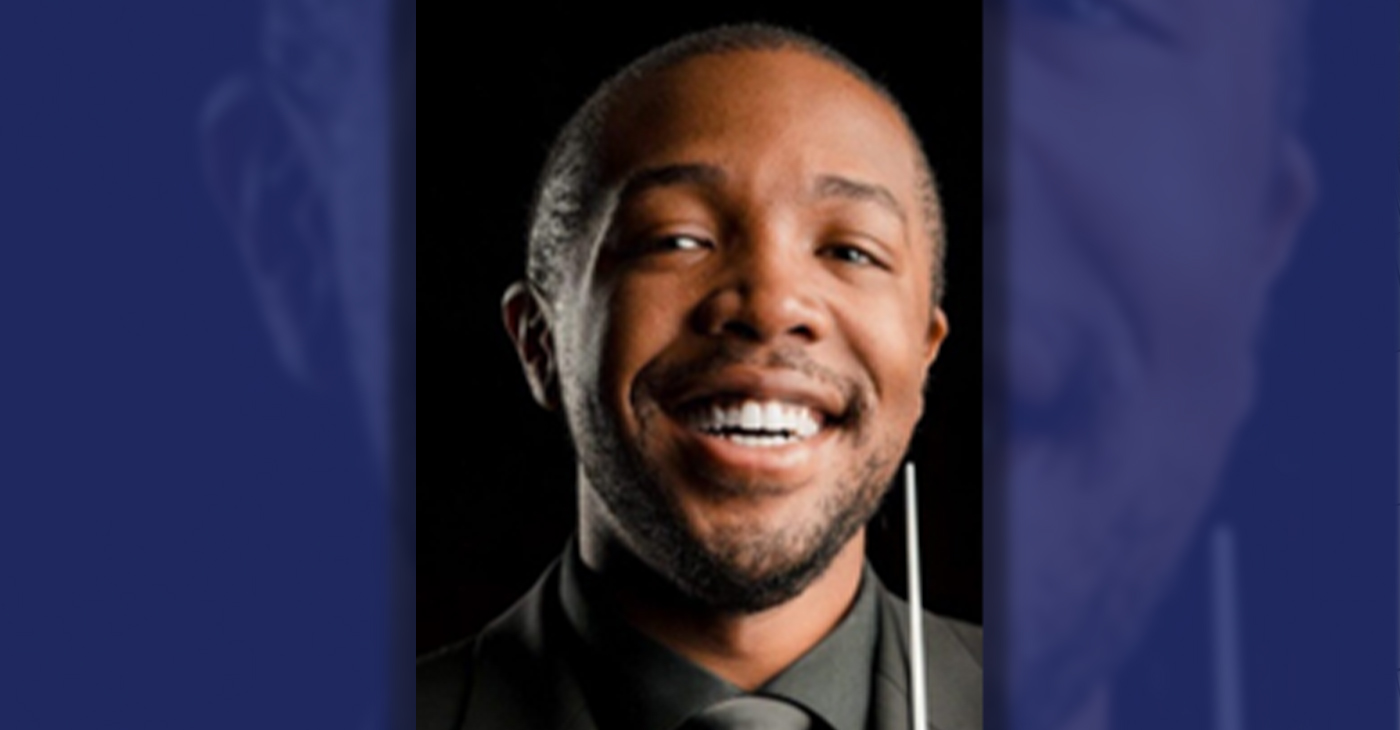
By Post Staff
The Oakland Symphony Announced Kedrick Armstrong as its Next Music Director.
In addition to conducting the orchestra’s public concerts, Armstrong will also actively participate in the Oakland Symphony’s many education and community engagement programs, designed to inspire a love of music in people of all ages.
Armstrong is the successor to previous music director and Conductor Michael Morgan, who passed away in 2021 after a 30-year tenure at the Symphony.
Armstrong will open the Oakland Symphony 2024-2025 season on October 18.
Armstrong, who is 29 and hails from Georgetown, South Carolina, is currently the creative partner and principal conductor of the Knox-Galesburg Symphony.
The Chicago Tribune has praised Armstrong for his ability to “simply let the score speak for itself.” He enjoys a wide range of repertoire, spanning early music to premiering new works, using his joy and curiosity for all music to cultivate understanding and collaboration within diverse communities.
“I am deeply honored and grateful for the opportunity to serve as the new music director of the Oakland Symphony,” Armstrong said. “As a Black conductor, I find it humbling to stand on the shoulders of both Michael Morgan and Calvin Simmons,” the most recent and the first African American music directors of the Symphony, respectively.
Armstrong led three programs at the Symphony between 2022 and early 2024, which showcased his broad knowledge of the classical repertoire and enthusiasm for spotlighting diverse voices.
On his Oakland Symphony subscription debut on Feb. 16, Armstrong led the world premiere of “Here I Stand: Paul Robeson,” an oratorio by Carlos Simon on a libretto by Dan Harder, commissioned by the Oakland Symphony.
Armstrong was selected unanimously by the Oakland Symphony’s board of directors and musicians after an extensive two-year search. “The search committee was overwhelmed by Kedrick’s scholarship and curiosity about all kinds of music, from classical and jazz to gospel and hip-hop,” said. Dr. Mieko Hatano, executive director of the Oakland Symphony. “We are thrilled to have him join us at the Oakland Symphony.”
Arts and Culture
Faces Around the Bay Dr. Carl Blake, Pianist
Born in Liberty, Missouri, Carl Blake, a virtuoso and respected pianist, made his most recent migration to the East Bay in 1999. One might have seen him performing recently at Noontime Concerts in San Francisco, or at the Piedmont Center for the Arts in Oakland. He is Director of Music at The Church for the Fellowship of All Peoples in San Francisco. He was also co-organizer and collaborative pianist at Herbst Theater for The Majesty of the Spirituals concert in 2022 and has held several church positions in the Bay Area.
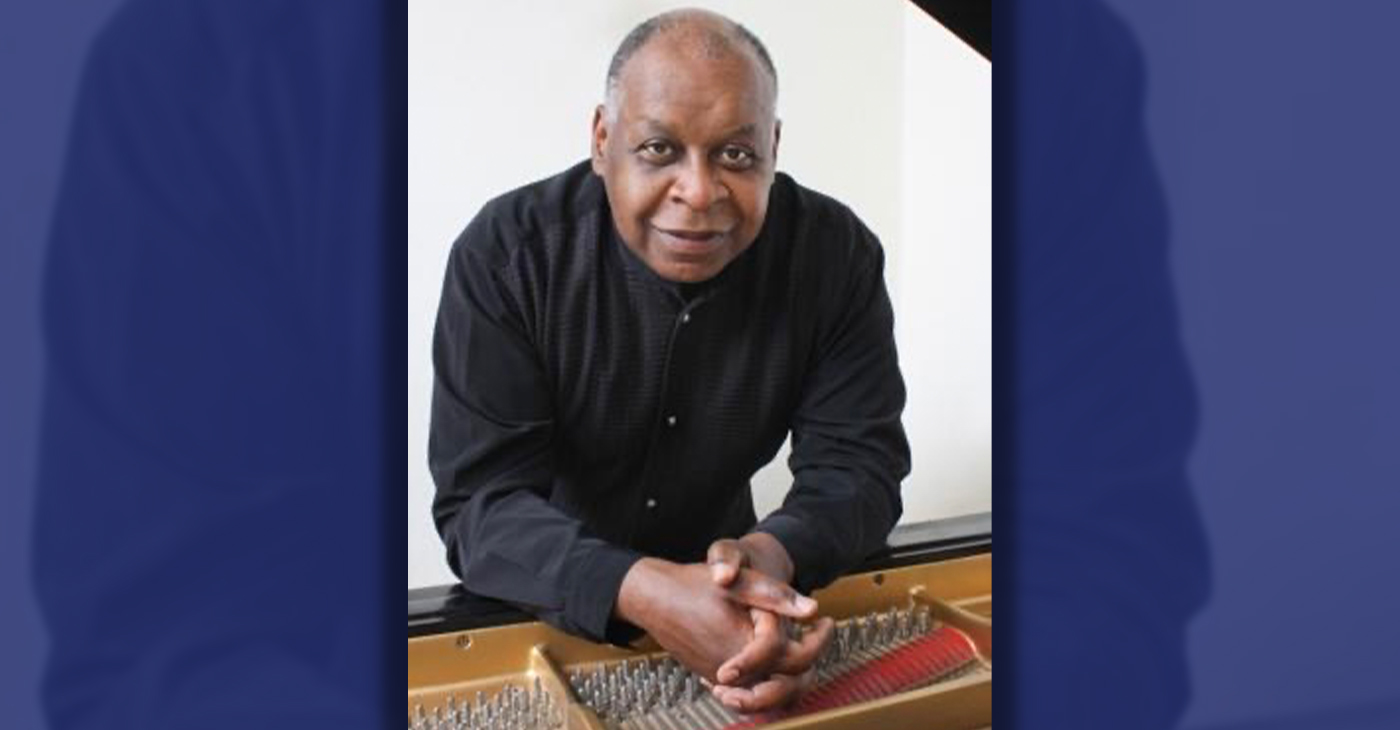
By Barbara Fluhrer
Born in Liberty, Missouri, Carl Blake, a virtuoso and respected pianist, made his most recent migration to the East Bay in 1999.
One might have seen him performing recently at Noontime Concerts in San Francisco, or at the Piedmont Center for the Arts in Oakland. He is Director of Music at The Church for the Fellowship of All Peoples in San Francisco. He was also co-organizer and collaborative pianist at Herbst Theater for The Majesty of the Spirituals concert in 2022 and has held several church positions in the Bay Area.
Blake obtained a Bachelor of Music from Boston University and continued post-baccalaureate studies in Jamaica before earning a Master of Arts in Music at San Jose State University. He was the recipient of two Fulbright residencies in Honduras and completed a third residency at the University of St. Petersburg in Russia. He has a Doctor of Musical Arts from Cornell University.
At age 19, Blake, then an undergraduate piano major at Boston University, was “discovered” by Impresario Dr. W. Hazaiah Williams, who is the Founder and Director of Today’s Artists/Four Seasons Arts.
Williams honored Blake by awarding him the first Marian Anderson Young Artist Award. Anderson personally presented the award at the Masonic Auditorium in S.F. Subsequently, Blake was presented by Dr. Williams in his San Francisco debut at The Herbst Theatre. Williams subsidized a year of study abroad for Blake at the Paris Conservatory of Music. Additionally, Williams sponsored Blake’s New York Weill Hall debut, where he has performed twice since. Blake performed several times at the Yachats Music Festival in Oregon.
Blake continues to perform nationally and abroad. His hobbies are reading, baking and travel. He says, “I’m still pumping ivories, as Belgian pianist Jeanne Stark described the disciplined practice of concert piano.”
Arts and Culture
Oakland Jazz Great Offers Master Class as City Declares “John Handy Day”
World-renowned jazz master saxophonist John Handy, a McClymond’s High School graduate, was presented with a Mayor of Oakland Proclamation declaring Feb. 12, as John Handy Day in the city. Handy is most notably known as the featured saxophonist for Charles Mingus on “Goodbye Pork Pie Hat” from the album “Mingus Ah Um” (1959) and on “Hard Work” from his own album “Hard Work” (1976).
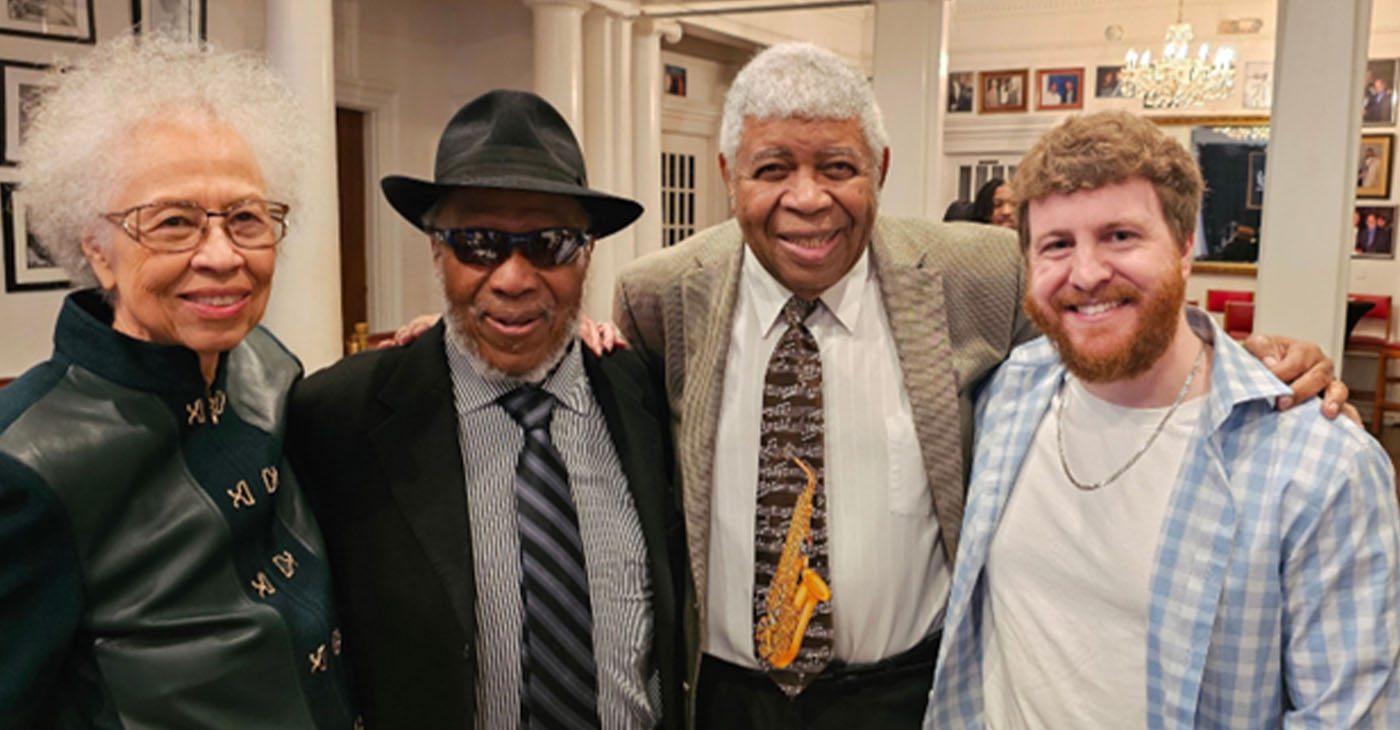
By Conway Jones
World-renowned jazz master saxophonist John Handy, a McClymond’s High School graduate, was presented with a Mayor of Oakland Proclamation declaring Feb. 12, as John Handy Day in the city.
Handy is most notably known as the featured saxophonist for Charles Mingus on “Goodbye Pork Pie Hat” from the album “Mingus Ah Um” (1959) and on “Hard Work” from his own album “Hard Work” (1976).
“John Handy is a jazz icon and an inspiration to musicians everywhere,” said Ayo Brame, a 16-year-old Oakland tenor saxophone player who is enrolled at the Oakland School for the Arts.
In celebration of this day, the reception in downtown Oakland at Geoffrey’s Inner Circle was a gathering of artists, young and old, coming together in his honor and celebrating his 91st birthday.
Handy presented a Saxophone Colossus free masterclass for musicians. This class afforded a rare opportunity to learn about the saxophone from an aficionado. The class was free and open to all – saxophonists, vocalists, aficionados, students, and casual listeners.
“As a longtime friend for over 60 years, and fellow musician who has had numerous opportunities to share the stage with John, it has always been a pleasure performing with him and hearing his creative interpretations of the music and his gift of ease inspiring the next generation of jazz musicians,” said Roger Glenn, a multi-instrumentalist.
-

 Community2 weeks ago
Community2 weeks agoFinancial Assistance Bill for Descendants of Enslaved Persons to Help Them Purchase, Own, or Maintain a Home
-

 Activism4 weeks ago
Activism4 weeks agoOakland Post: Week of April 3 – 6, 2024
-

 Business2 weeks ago
Business2 weeks agoV.P. Kamala Harris: Americans With Criminal Records Will Soon Be Eligible for SBA Loans
-

 Community2 weeks ago
Community2 weeks agoAG Bonta Says Oakland School Leaders Should Comply with State Laws to Avoid ‘Disparate Harm’ When Closing or Merging Schools
-

 Activism3 weeks ago
Activism3 weeks agoOakland Post: Week of April 10 – 16, 2024
-

 Community2 weeks ago
Community2 weeks agoOakland WNBA Player to be Inducted Into Hall of Fame
-

 Community1 week ago
Community1 week agoRichmond Nonprofit Helps Ex-Felons Get Back on Their Feet
-

 City Government2 weeks ago
City Government2 weeks agoLAO Releases Report on Racial and Ethnic Disparities in California Child Welfare System




